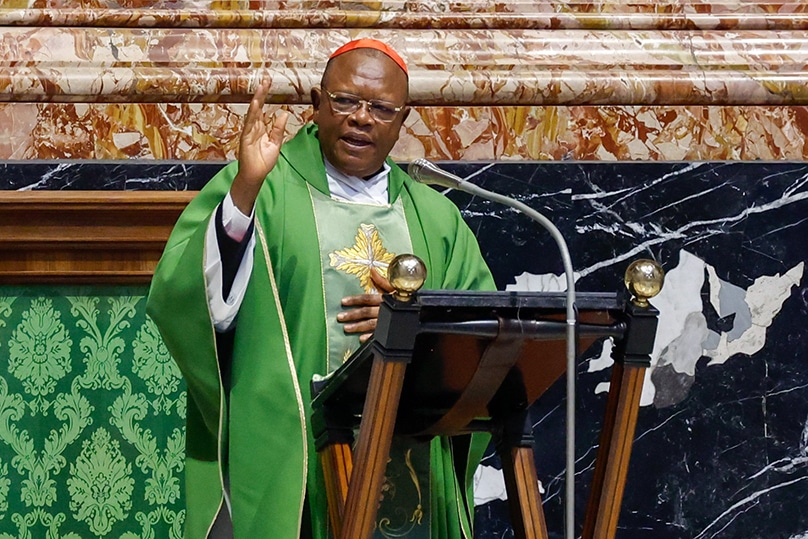
I’ve just finished my first week here in Rome for the Synod on Synodality. On my first day, while waiting for the first press briefing, I sat at a restaurant just a couple of blocks from the Vatican and engaged in conversation with American tourists seated at the next table.
The woman at the table asked what had brought me to Rome and I mentioned that I was covering the synod for the Catholic Weekly. I was ready to explain what a synod was, when she interrupted: “I hope Pope Francis lives long enough to see some of these reforms through. The next Pope will be more conservative, and the changes won’t happen if this Pope doesn’t get the chance to see the Synod out.”
After expressing the obligatory lament about the “close-mindedness” of young clergy, my new friend expressed her hope was that the synod would usher in sweeping reforms of a progressive nature. I smiled and nodded, deciding it wasn’t worth sharing my views (I concede it was not very synodal of me.)
Although brief, this exchange illustrated the expectations some have for this synod: that there are significant changes ahead, particularly when it comes to the church’s teaching on matters of human sexuality, and it would be a contest of ideas between the old guard and the new.
The story is very different, however, once you walk into the press briefing room. Each day so far, media have been told that the Synod is a completely harmonious event that is not about changes to doctrine, but rather about how we walk together as the People of God.
That the synod began in the shadow of the publication of responses to Dubia that honed in on issues of sexual ethics and women’s ordination make the unwillingness to address these issues head on the big, fat elephant in the press room.
On Saturday, Cardinal Fridolin Ambongo Besungu of Kinshasa in the Democratic Republic of Congo was asked by a journalist whether the African bishops would accept the blessing of same-sex couples if it were an outcome of the Synod.
His Eminence responded that he would not be strayed from “the theme of synodality,” which he described as “a new way for the church to walk together, hand in hand, towards the shore where the Lord awaits us” and said that, when it came to LGBT issues, the Lord himself would tell the church the direction to follow. He declined to offer his own opinion, saying that to do so would “depart from the spirit of synodality.”
At the next briefing, Cardinal Joseph Tobin of Newark, USA compared the synodal “conversations in the Spirit” to enjoying food from a range of different cultures. He said that he was fascinated by “how people look at the same things, not with differences that necessarily divide, but ways that can enrich each other.”
In the briefing the day after that, Cardinal Gerald Lacroix of Quebec, Canada said that the object of the synod “is not to address doctrinal aspects but to look at our attitudes and way of discerning, to learn to journey together,” and that it was not “a matter of addressing specific topics.”
At this same briefing, Dr Paolo Ruffini, Prefect of the Vatican’s Dicastery for Communication, said that some interventions on the topic of sexual identity noted the need to remain faithful to the Gospel and to church teaching, while others asked for greater discernment on the teaching of the church on sexuality, and still more said there was no need for discernment.
Dr Ruffini, however, declined to characterise the mutually exclusive views expressed in these interventions (and undoubtedly in the small group discussions at the tables) as “polarising,” saying instead that there was just a “sharing ideas and concerns that are different.”
It didn’t matter what or how a question was asked, there was a reluctance for anyone to express their own view, or to even acknowledge that people participating in the synod hold understandings of Divine Revelation that are not only different, but mutually exclusive.
The problem with this, it seems to me, is that the church’s moral teachings and sacramental doctrine are not irrelevant to synodality; they are central to it. After all, why would the church need to find a new way of walking or journeying together unless there was some sense that, in this present moment, people are on very divergent paths that are completely irreconcilable? Surely, implicit in asking people to journey together is an acknowledgment that some have walked completely off the reservation (read: Germany).
If that’s the case, I think it would be good if we were at least up front about where we are now and what is at stake if we don’t address it, and not shy away from it. The truth is too important to do otherwise.
